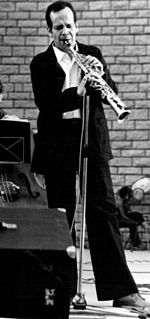A Quote by Ben Jonson
Related Quotes
The spiritual kinship between Lincoln and Whitman was founded upon their Americanism, their essential Westernism. Whitman had grown up without much formal education; Lincoln had scarcely any education. One had become the notable poet of the day; one the orator of the Gettsyburg Address. It was inevitable that Whitman as a poet should turn with a feeling of kinship to Lincoln, and even without any association or contact feel that Lincoln was his.
One of the appeals of William Carlos Williams to me is that he was many different kinds of poet. He tried out many different forms in his own way of, more or less, formlessness. He was also a poet who could be - he was a love poet, he was a poet of the natural order and he was also a political poet.
Every really able man, in whatever direction he works - a man of large affairs, an inventor, a statesman, an orator, a poet, a painter - if you talk sincerely with him, considers his work, however much admired, as far short of what it should be. What is this Better, this flying Ideal, but the perpetual promise of his Creator?



































